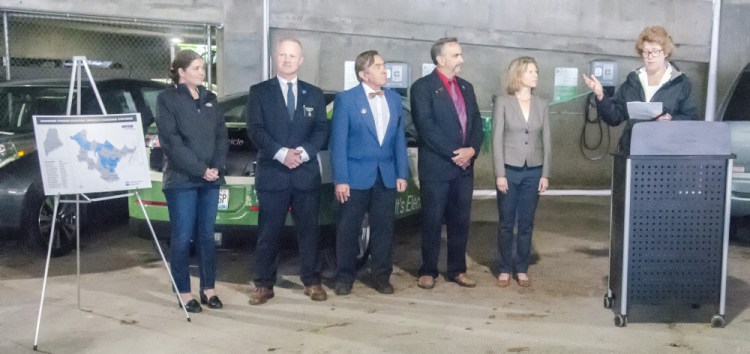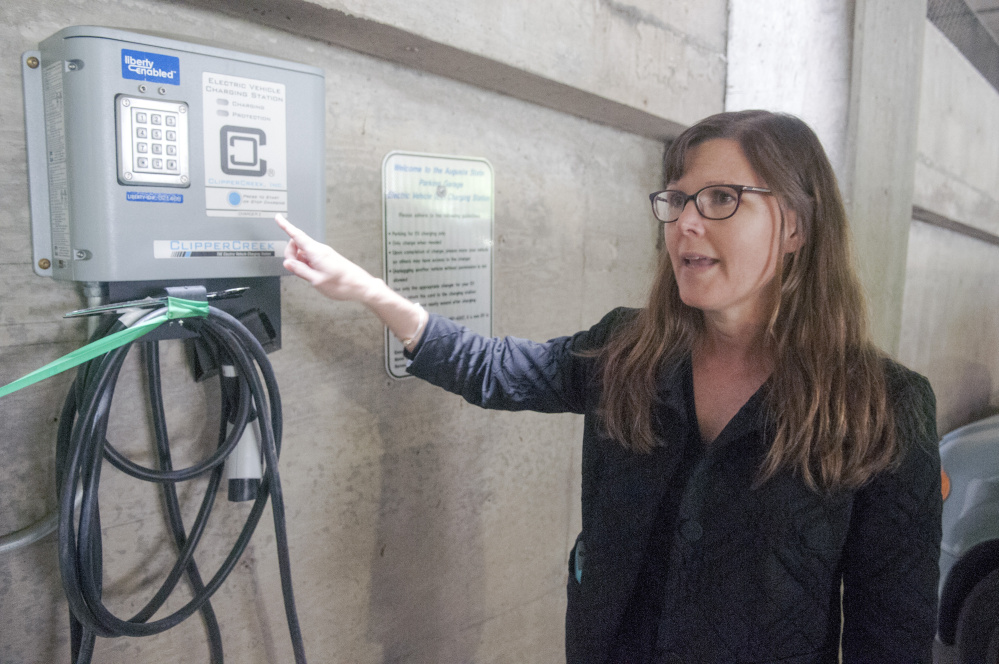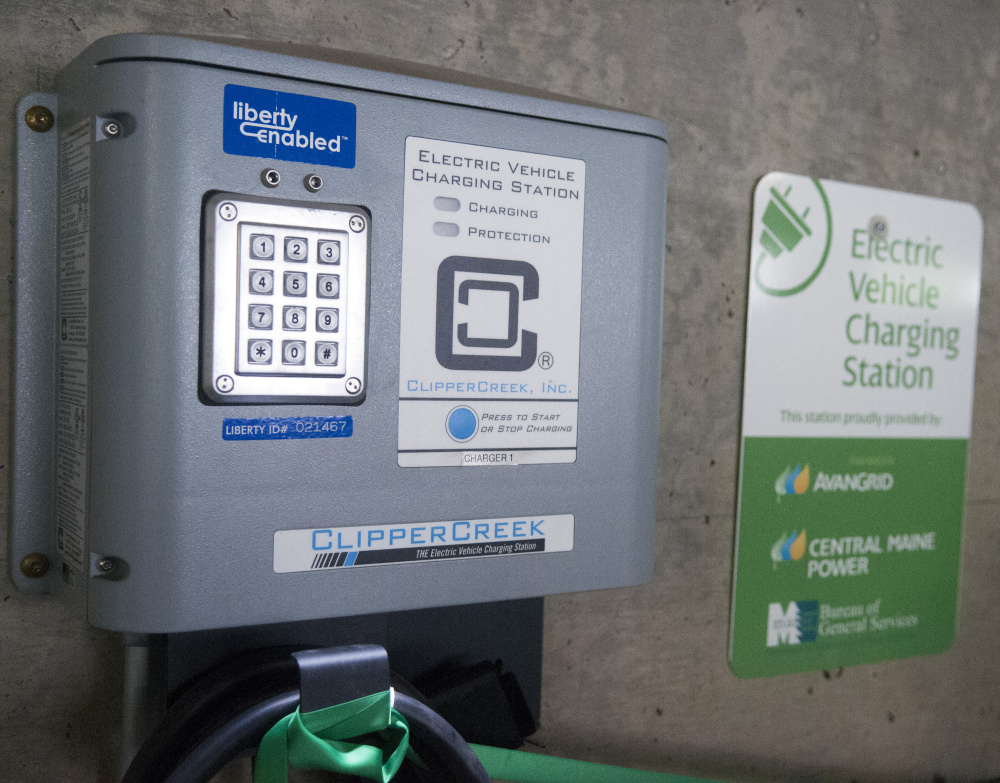AUGUSTA — For about an hour on Friday afternoon, Martin Grohman, a state representative from Biddeford, had one of the best parking spots in town.
It was just opposite the east entrance of the Sewall Street parking garage, meaning Grohman, a Democrat, had a short walk to the State House. And two charging stations had just been installed next to that parking spot and made available, for a small fee, to members of the public who drive electric cars.
So Grohman, who drives a plug-in Toyota Prius, would be able to charge his car’s battery before leaving town. After charging the hybrid for an hour in Augusta, it could travel as far as Brunswick before switching to gasoline.
“I was the guinea pig,” Grohman said, referring to the fact that he was one of the first drivers to pay to use the new charging stations. “It works great on a Prius. I’m going to use it every day.”
Those charging stations were installed in Augusta through a partnership between Central Maine Power Co. and Maine Clean Communities, a project of the Greater Portland Council of Governments, and unveiled during a ribbon-cutting ceremony Friday afternoon.
A charity associated with CMP’s parent company, the Avangrid Foundation, has provided $50,000 to Maine Clean Communities to install 18 charging stations around the southern half of the state, including the pair that went online in Augusta.
Battery-powered vehicles now account for just a small percentage of the cars on Maine roads. Of the 850,000 passenger vehicles registered in Maine, about 400 are fully electric — up from 150 in 2015 — and another 400 are plug-in electrics, the Portland Press Herald reported this month.
But as groups try to drive those numbers higher — both to reduce carbon emissions and to take advantage of a new business opportunity — they’re also trying to expand the availability of the hardware that keeps those cars going.
The two public chargers that were unveiled on Friday join about 120 others that are available around the state, mostly along the coast and in metropolitan areas.
They are rated as Level 2 chargers, meaning they’re more powerful than the standard outlet available at someone’s home. Grohman, the lawmaker, said his Prius can charge in one hour on the Augusta chargers, but takes a couple of hours to charge at his home.
He said it costs about $1 for him to get a full charge. Drivers can use their credit cards to pay for using the chargers, and the proceeds go to the state Bureau of General Services, said Jennifer Brennan, a program manager for the Greater Portland Council of Governments.
There are a few other public stations in Augusta, including a high-speed charger at the Hannaford supermarket on Whitten Road and a supercharging station for Tesla cars at the Marketplace at Augusta.
Those high-speed charging stations provide a heavy dose of power, allowing travelers get a sizable charge in less than an hour.
But anyone hoping to quickly top off the battery on their cellphones should stick with a standard wall charger, according to Benjamin Blake, clean transportation manager for the Greater Portland Council of Governments. The charger at Hannaford “would probably melt your phone,” he said.
State officials also have been working with their counterparts in Quebec to develop a corridor of charging stations, for workers and tourists who travel between the state and the Canadian province.
CMP delivers power across central and southern Maine, and it supports the expansion of electric vehicle technology. Soon it will announce a new grant program to advance the technology, said Sara Burns, president and chief executive officer of the utility, at the ribbon-cutting.
Company officials now have two electric vehicles, both Chevrolet Volts, available to them.
While the company’s line workers drive diesel trucks, 13 of their trucks have electric booms and buckets, allowing them to operate quietly at the job site and without the exposure to diesel fumes, Burns said. And the utility soon will buy a half dozen Chevrolet Bolts, a new line of car that can travel 238 miles on a single charge and costs an estimated $37,000.
“We want to be a good neighbor in the communities we serve, and that includes showing respect for the environment and minimizing our carbon footprint as we do our work,” Burns said.
Others at the ribbon-cutting on Friday also were convinced of the benefits of electric vehicles.
Two other lawmakers who were there, Sen. David Miramant, D-Camden, and Rep. Dean Rykerson, D-Kittery, both said they are thinking about buying Chevrolet Bolts.
Charles Eichacker — 621-5642
Twitter: @ceichacker
Send questions/comments to the editors.






Success. Please wait for the page to reload. If the page does not reload within 5 seconds, please refresh the page.
Enter your email and password to access comments.
Hi, to comment on stories you must . This profile is in addition to your subscription and website login.
Already have a commenting profile? .
Invalid username/password.
Please check your email to confirm and complete your registration.
Only subscribers are eligible to post comments. Please subscribe or login first for digital access. Here’s why.
Use the form below to reset your password. When you've submitted your account email, we will send an email with a reset code.